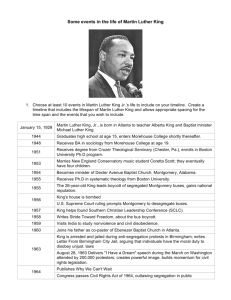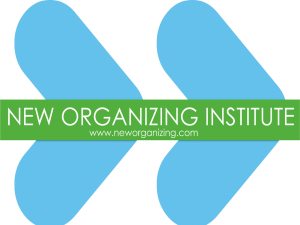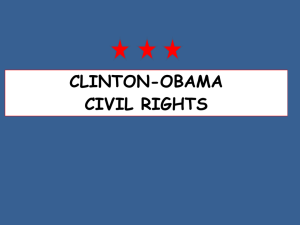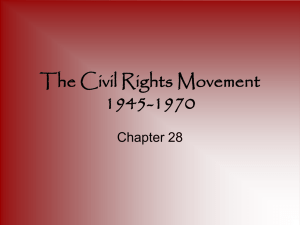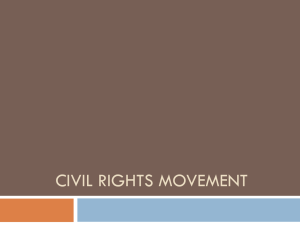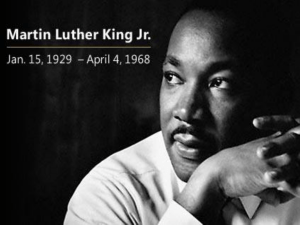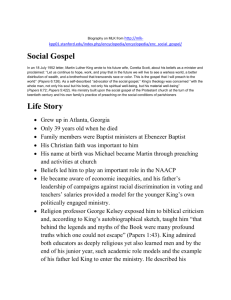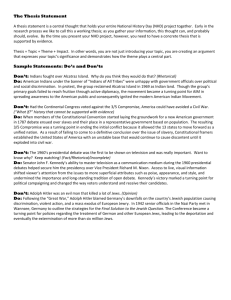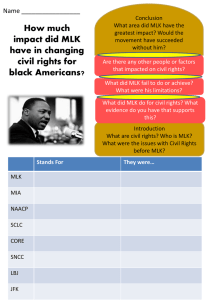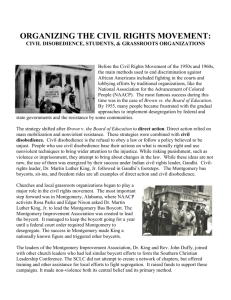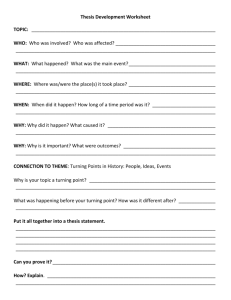2.1 D: Martin Luther King Jr. African
advertisement
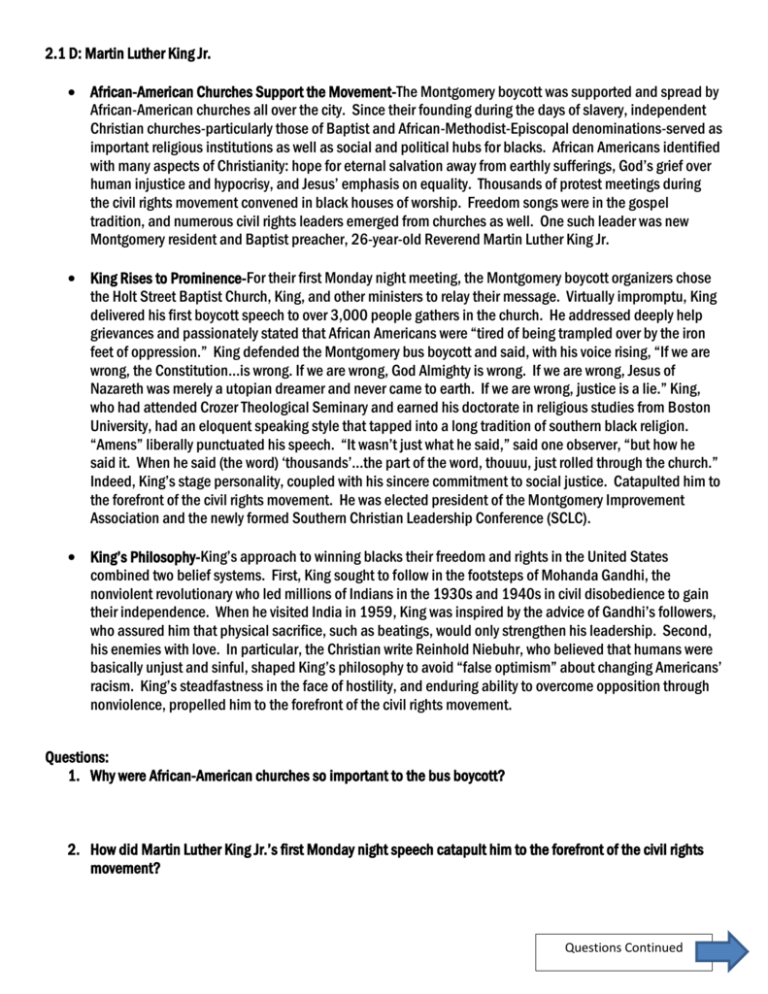
2.1 D: Martin Luther King Jr. African-American Churches Support the Movement-The Montgomery boycott was supported and spread by African-American churches all over the city. Since their founding during the days of slavery, independent Christian churches-particularly those of Baptist and African-Methodist-Episcopal denominations-served as important religious institutions as well as social and political hubs for blacks. African Americans identified with many aspects of Christianity: hope for eternal salvation away from earthly sufferings, God’s grief over human injustice and hypocrisy, and Jesus’ emphasis on equality. Thousands of protest meetings during the civil rights movement convened in black houses of worship. Freedom songs were in the gospel tradition, and numerous civil rights leaders emerged from churches as well. One such leader was new Montgomery resident and Baptist preacher, 26-year-old Reverend Martin Luther King Jr. King Rises to Prominence-For their first Monday night meeting, the Montgomery boycott organizers chose the Holt Street Baptist Church, King, and other ministers to relay their message. Virtually impromptu, King delivered his first boycott speech to over 3,000 people gathers in the church. He addressed deeply help grievances and passionately stated that African Americans were “tired of being trampled over by the iron feet of oppression.” King defended the Montgomery bus boycott and said, with his voice rising, “If we are wrong, the Constitution…is wrong. If we are wrong, God Almighty is wrong. If we are wrong, Jesus of Nazareth was merely a utopian dreamer and never came to earth. If we are wrong, justice is a lie.” King, who had attended Crozer Theological Seminary and earned his doctorate in religious studies from Boston University, had an eloquent speaking style that tapped into a long tradition of southern black religion. “Amens” liberally punctuated his speech. “It wasn’t just what he said,” said one observer, “but how he said it. When he said (the word) ‘thousands’…the part of the word, thouuu, just rolled through the church.” Indeed, King’s stage personality, coupled with his sincere commitment to social justice. Catapulted him to the forefront of the civil rights movement. He was elected president of the Montgomery Improvement Association and the newly formed Southern Christian Leadership Conference (SCLC). King’s Philosophy-King’s approach to winning blacks their freedom and rights in the United States combined two belief systems. First, King sought to follow in the footsteps of Mohanda Gandhi, the nonviolent revolutionary who led millions of Indians in the 1930s and 1940s in civil disobedience to gain their independence. When he visited India in 1959, King was inspired by the advice of Gandhi’s followers, who assured him that physical sacrifice, such as beatings, would only strengthen his leadership. Second, his enemies with love. In particular, the Christian write Reinhold Niebuhr, who believed that humans were basically unjust and sinful, shaped King’s philosophy to avoid “false optimism” about changing Americans’ racism. King’s steadfastness in the face of hostility, and enduring ability to overcome opposition through nonviolence, propelled him to the forefront of the civil rights movement. Questions: 1. Why were African-American churches so important to the bus boycott? 2. How did Martin Luther King Jr.’s first Monday night speech catapult him to the forefront of the civil rights movement? Questions Continued 3. What is the SCLC? 4. What was it about Mohandas Gandhi that King looked up to? 5. What Christian teachings helped King shape his philosophy?
